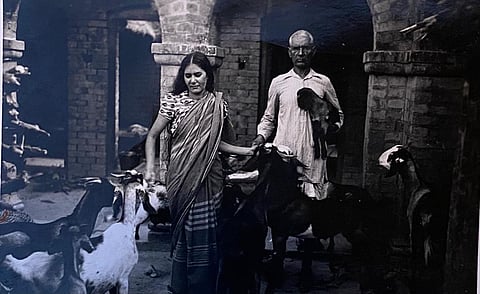Nusrat F Jafri on a personal history of caste and conversions in India: Southasia Review of Books podcast #17
Welcome to the Southasia Review of Books Podcast from Himal Southasian, where we speak to celebrated authors and emerging literary voices from across Southasia. In this episode, Shwetha Srikanthan speaks to the cinematographer and writer Nusrat F Jafri about her memoir This Land We Call Home: The Story Of A Family, Caste, Conversions And Modern India (Penguin, April 2024)
In 1871, the British colonial regime in India enacted the Criminal Tribes Act, branding numerous tribes and caste groups as so-called “criminals”. In This Land We Call Home, Nusrat traces the roots of her nomadic ancestors, the Bhantus from Rajasthan, who belonged to one such community in northwestern India.
Through the stories of her relatives’ decisions to embrace new religions, their acts of defiance against caste-based oppression, and the pathbreaking women of her family, Nusrat offers an arresting portrait of an Indian family across generations, and also of modern India itself.
This episode is now available on Spotify, Apple Podcasts and Youtube.
Episode notes:
The secret new faiths of Indian believers navigating harsh anti-conversion laws and repression - Sumaiya Ali (September 2024, Himal Southasian)
The persistent risks of love across social norms in India - Ankush Pal, Alfiya Azeem Khan (April 2024, Himal Southasian)
India needs a caste census – and Southasia does too - Anil Varghese and Nawal Kishore Kumar (January 2024, Himal Southasian)
The early story of Christianity in Northeast India - Roderick Wijunamai (October 2020, Himal Southasian)
Colonial and casteist ideas still shape criminalisation and policing in India - Nikita Sonavane (January 2024, Himal Southasian)
Against the might of the State: in conversation with Dakxin Chhara (September 2017, The Hindu)
Ants Among Elephants: An Untouchable Family and the Making of Modern India by Sujatha Gidla (July 2017, Harper Collins India)

